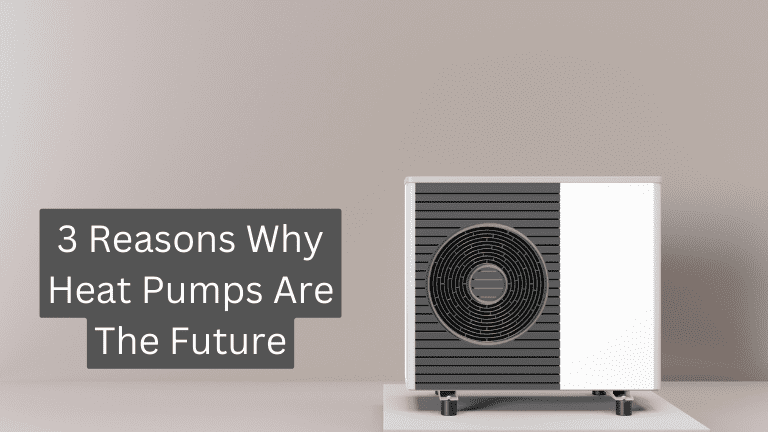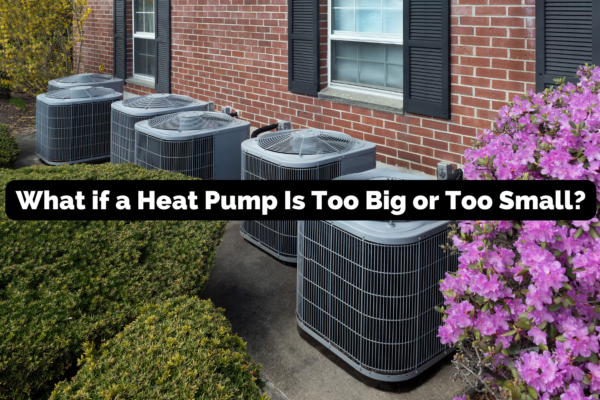Adoption of heat pump technology is slowly growing. From Florida to Mumbai, more people are installing heat pumps to cool their homes or heat their water. But are heat pumps a new innovation?
At a time when many countries are focused on meeting their climate change goals, can heat pumps play a role in building a sustainable future?
Heat pumps have been around for decades. Although historically more popular in temperate climates like Europe and Asia, they are slowly starting to pick up steam in colder climates like North America.
Are Heat Pumps Air Conditioners?
Heat pumps compress a refrigerant to increase the pressure on it. Increasing the pressure on a gas increases its temperature. Decreasing the pressure has the opposite effect in that it decreases the temperature. This is the fundamental principle behind how heat pumps, refrigerators and air conditioners work.
In a heat pump, the refrigerant is compressed using electricity to raise its temperature. The resulting heat is then moved into your home through the refrigerant. This loss of heat cools the refrigerant, starting the process again and gradually heating your home. This process also works in reverse to cool your home.
This is the primary difference between a heat pump and an air conditioner. It both heats and cools your home.
There are three main types of heat pumps. These are air source heat pumps (ASHP), ground source heat pumps (GSHP) and absorption heat pumps (ASP).
Air source heat pumps are the most commonly used. They transfer heat from the air to your home. Ground source heat pumps collect heat from the ground or a water source. This is why they are also called water source heat pumps. Absorption heat pumps are a newer type of heat pump. They source heat from sources including natural gas, air or ground-heated water.
What makes heat pumps important to the future? There are three main reasons.
Energy efficiency
Heat pumps have several advantages. For one, they work more efficiently than traditional furnaces and air conditioners.
Heat Pump Versus A Furnace
Compared to a furnace, a heat pump has a better coefficient of performance (COP). Heat pumps have a COP of between 3 and 4. This means for every watt of electricity used, a heat pump produces 3 to 4 joules of heat.
Combustion engines like furnaces and even cars have a maximum efficiency of 85 percent since there is some loss wherever energy is converted from one form to another. In comparison, a furnace’s coefficient of performance is less than 1.
Water Heating
Most people are familiar with using heat pumps for space heating and cooling. But they can also be used to heat the water in your home. Heat pump water heaters are more efficient than traditional water heating.
The US Department of Energy puts the cost of running a heat pump water heater at between 50 to 75 percent less than conventional water heating.
Cost Savings
It is no secret that heat pumps are expensive to buy and install. On average you can expect to pay more for a heat pump than for either an air conditioner or a furnace. What typically drives up the costs is the complicated process of installing a heat pump.
Installation typically requires added labor, modifications or more material that will significantly increase the final purchase price.
However, most of the costs invested in a heat pump can be recouped by way of savings. Depending on your climate and the type of system used, a heat pump can save you anywhere from 20 to 80 percent on your electricity bill. Get a quote and find out how much you could save if you switched to a heat pump.
Although it is the most expensive system to install, a ground source heat pump is said to produce the most energy savings. Geothermal systems can reduce energy use by between 30 to 60 percent and cut your bill by up to 80 percent at the same time.
Creating Employment
A frequently overlooked fact is how young technologies like heat pumps and even solar panels are. Currently, they represent only a small fraction of global energy production compared to traditional fossil fuel generation.
The heat pump market has a lot of room for growth. Driven by increasing demand, policy interventions, and growing consumer awareness around sustainability and renewable energy, the market for heat pumps is expected to grow by 8 percent every year. This market growth is important because it will create massive employment opportunities and economic development. According to environmentalists at Greenpeace, installing 900,000 heat pumps in the UK would directly result in the creation of 138,600 jobs and inject $10 billion into the economy.
The Importance Of Heat Pumps
Increased adoption of heat pumps will create more employment which will help boost economies. On a consumer level, switching to heat pumps will help create more energy efficient homes.
Heat pumps are a more efficient HVAC system because they combine both heating and cooling. Rather than have a furnace for heating and an air conditioner for cooling, you can have one system that performs both functions.
While a heat pump is more expensive than either of the two, it is much cheaper than the two combined. For homes that require both heating and cooling, it makes more sense financially to get a heat pump than to install air conditioning and a furnace separately. Get an estimate and compare what it would cost to get a heat pump versus the cost of a furnace and air conditioner.
The improved efficiency of a heat pump and the fact that it reduces consumption of natural gas has an important part to play in building a sustainable future.
The Role Of Heat Pumps In A Sustainable Future
Switching to renewable energy sources and electrifying are thought to be the most realistic ways of reducing our carbon footprint and fighting global warming. To that end, countries around the world are adopting cleaner sources of energy like hydrogen, biogas and solar.
Heat pumps as well can help us transition to a more carbon neutral environment. Heat pumps run off electricity rather than use natural gas like a furnace does
Switching to heat pumps could offset over 8 million tons of carbon emissions by 2050 according to a research report by the Rocky Mountain Institute. Combined with a renewable energy source like solar, having a heat pump in your home would make a huge contribution to a more sustainable future.




